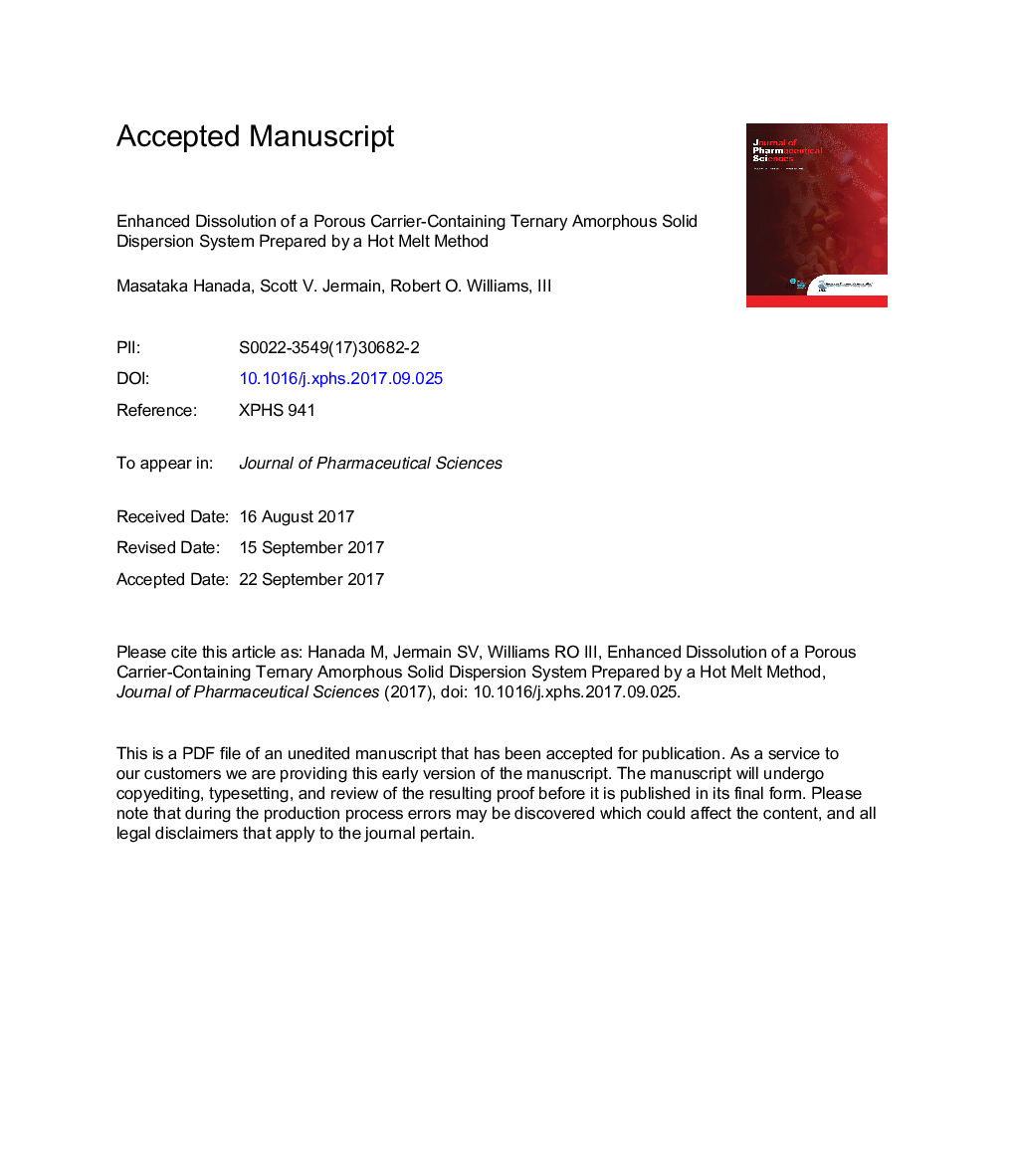| Article ID | Journal | Published Year | Pages | File Type |
|---|---|---|---|---|
| 8513633 | Journal of Pharmaceutical Sciences | 2018 | 25 Pages |
Abstract
The focus of our study was to employ a solvent-free, thermal process to evaluate the use of a porous carrier in a drug-polymer-porous carrier ternary formulation containing a high drug load (e.g., â¥50% w/w). The purpose of the study was to improve the dissolution properties of the biopharmaceutical classification system class II drug, indomethacin, in the ternary formulation. The effect that the selected polymer has on properties of the formulation was studied, and the formulation characteristics of hypromellose (AF15), copovidone (VA64), and polyvinyl alcohol-polyethylene glycol graft copolymer was evaluated to understand differences in dissolution rates and drug adsorption onto the porous carrier. The ternary formulations were manufactured using a thermal technique that relied on heating and mixing, without the necessity of mechanical shear. All thermally processed granules that employed the porous carrier exhibited immediate release compared with crystalline indomethacin and physical mixtures. In addition, the ternary formulations maintained supersaturation compared with the binary formulations without polymer. The results of this study indicated that the thermally processed ternary formulations containing a porous carrier demonstrated a much improved dissolution profile in nonsink conditions.
Related Topics
Health Sciences
Pharmacology, Toxicology and Pharmaceutical Science
Drug Discovery
Authors
Masataka Hanada, Scott V. Jermain, Robert O. III,
